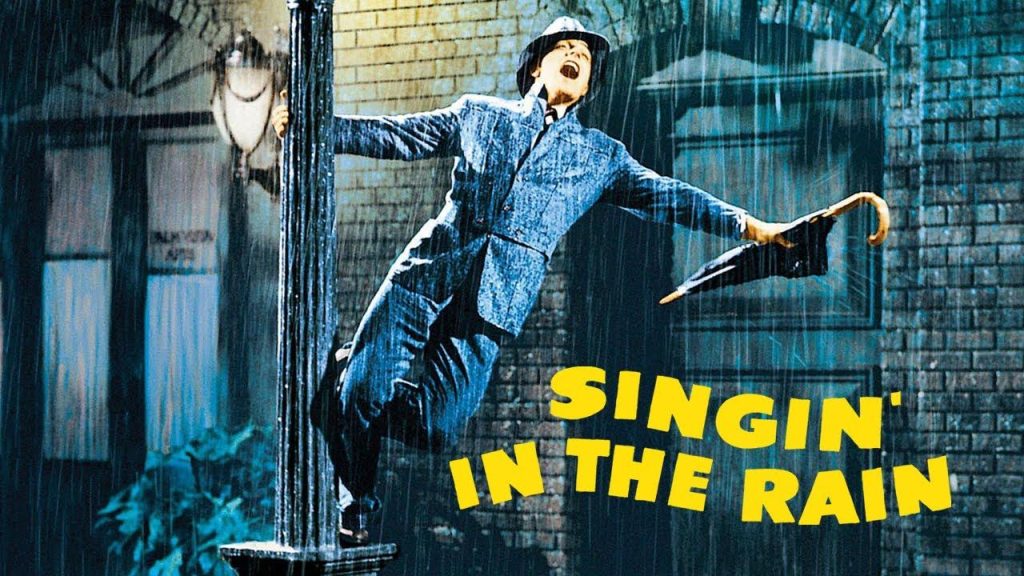In a world where headlines often oscillate between the absurd and the alarming, comedy films have long served as a refuge, a space where laughter can momentarily eclipse the complexities of life. Yet, as society grapples with increasingly intricate issues—ranging from political polarization to social justice movements—the role of comedy in film is being reexamined. Should these cinematic escapes evolve to reflect the nuanced realities of today’s social climate through satire, or does their value lie in offering a reprieve from them? This article delves into the intricate dance between comedy and satire, exploring whether the laughter elicited by films should come with a side of critical reflection, or if humor should remain an unburdened source of joy in turbulent times.
Balancing Humor and Sensitivity in Modern Comedy Films
In the ever-evolving landscape of modern comedy films, filmmakers are tasked with the delicate art of weaving humor with a conscientious nod to societal sensitivities. Comedy, by its nature, challenges norms and provokes thought, but today’s filmmakers must navigate the nuanced expectations of diverse audiences. As society becomes increasingly aware of issues such as representation, equality, and inclusivity, comedians are finding new ways to be both funny and respectful.
- Understanding Context: Humor should be rooted in context, acknowledging the backgrounds and experiences of diverse audiences without resorting to stereotypes.
- Thoughtful Satire: Satirical elements can highlight societal flaws, but must be crafted to enlighten rather than offend, ensuring that the punchline elevates discourse.
- Engagement with Audience: Modern comedies often thrive by engaging with their audience’s sensibilities, encouraging a dialogue rather than dictating what’s funny.
In this climate, the question remains: should comedy films lean more towards satire, using it as a tool for social commentary, or should they prioritize lightheartedness and entertainment value? The balance between humor and sensitivity may just be the key to resonating with today’s audience, ensuring that comedy remains a powerful medium for both laughter and reflection.

Exploring the Role of Satire in Addressing Social Issues
In today’s rapidly evolving social climate, the role of satire in comedy films has become a topic of considerable discussion. Satire, with its sharp wit and critical edge, can illuminate societal flaws and provoke thought, making it a potent tool for filmmakers. However, as audiences grow more sensitive to social issues, the balance between humor and critique becomes ever more crucial. Comedy films that incorporate satire must navigate the fine line between entertaining and offending, ensuring that their messages are both impactful and respectful.
When used effectively, satire can serve as a mirror to society, reflecting its absurdities and injustices in a way that is both engaging and enlightening. Consider the following ways satire can address social issues:
- Highlighting Hypocrisy: By exaggerating societal norms and behaviors, satire can expose the contradictions and double standards that often go unnoticed.
- Encouraging Critical Thinking: Satirical comedy can challenge audiences to question their own beliefs and assumptions, sparking meaningful conversations and introspection.
- Promoting Change: By bringing attention to social issues in a humorous context, satire can inspire viewers to take action and advocate for change.
In this context, filmmakers must weigh the potential of satire to foster understanding and dialogue against the risk of alienating or offending their audience. As society continues to grapple with complex social issues, the call for comedy films to incorporate more satire grows louder, offering a unique opportunity to blend humor with social commentary.

Crafting Comedy that Resonates with Diverse Audiences
In today’s diverse social landscape, comedy filmmakers are presented with the unique challenge of creating content that resonates across various cultural and social spectrums. To craft humor that truly connects, many are turning to satire as a tool for reflection and dialogue. This approach not only entertains but also offers a mirror to society, highlighting its quirks and inconsistencies in a manner that is both insightful and engaging. Satire, with its ability to deftly navigate sensitive topics, can offer a nuanced perspective that traditional comedy might struggle to achieve.
Here are a few considerations for filmmakers aiming to craft comedy that resonates with a wide audience:
- Understanding Cultural Nuances: Recognizing and respecting cultural differences can help in crafting jokes that are inclusive rather than alienating.
- Balancing Humor and Sensitivity: While satire allows for a critical examination of societal issues, maintaining a balance ensures that the humor does not become offensive.
- Encouraging Dialogue: Comedy that sparks conversation can contribute to a broader understanding and appreciation of diverse perspectives.
By embracing these elements, filmmakers can harness the power of satire to create comedy that not only entertains but also fosters a deeper connection with audiences worldwide.

Recommendations for Filmmakers: Navigating Satire with Care
When approaching the delicate art of satire in comedy films, filmmakers should tread thoughtfully to balance humor with respect and insight. Here are some key considerations:
- Understand Your Audience: It’s crucial to have a clear grasp of the audience’s sensibilities and cultural context. What might be humorous to one group could be offensive to another. Tailoring the satirical elements to resonate with the intended audience can help avoid misunderstandings.
- Research Thoroughly: The best satire is rooted in truth and understanding. Filmmakers should invest time in researching the topics they wish to satirize. This not only enriches the narrative but also lends credibility and depth to the humor.
- Focus on Intent: The intention behind satire should be to provoke thought, not to belittle or alienate. Clear intentions can guide the tone of the film and help ensure that the satire is perceived as insightful rather than insensitive.
By carefully considering these aspects, filmmakers can craft satirical comedies that entertain while thoughtfully engaging with today’s social climate.









